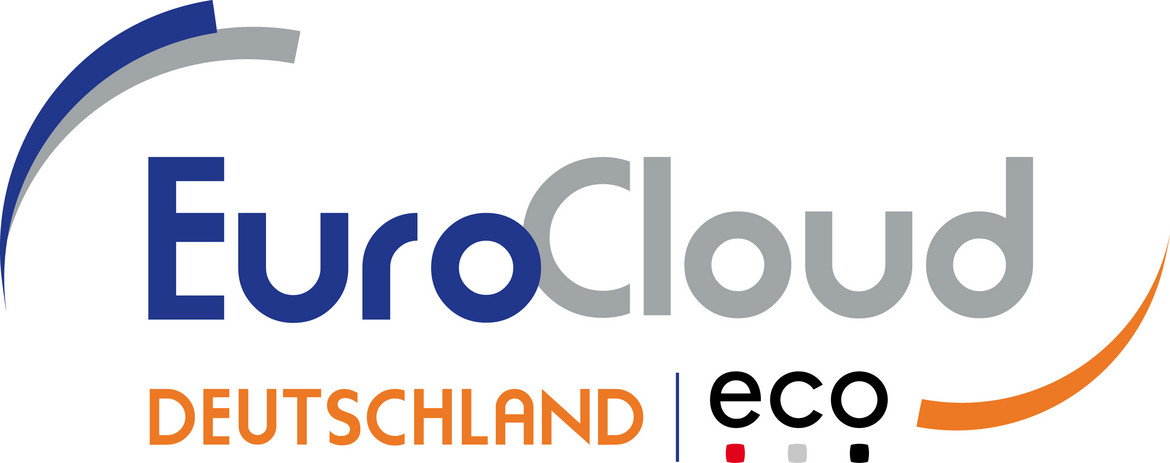Cloud Natives to Acquire a Voice of their Own
To pave the way for a better understanding of public cloud potential, cloud natives need their own platform, explain Dr. Nils Kaufmann and Thomas Noglik of EuroCloud. The solution? The new Cloud Native initiative.

© Dilok Klaisataporn | istockphoto.com
Without the public cloud, Netflix or Zalando would be unthinkable. And what about when it comes to SMEs? They are now starting to have confidence in the cloud, despite a distinct lack of cloud experts out there. A new type of IT service provider could bridge this gap: Highly specialized start-ups offer their services exclusively on hyperscaler infrastructures. The problem: demand is much greater than supply. EuroCloud now wants to give cloud native providers a voice of their own, paving the way for a better understanding of the potential of the public cloud. An interview with Dr. Nils Kaufmann and Thomas Noglik on the launch of EuroCloud’s new Cloud Native initiative.
Digital natives only know a life with the Internet. And “cloud natives” are natives of the cloud economy. What kind of companies is the EuroCloud initiative aimed at?
Thomas Noglik: They’re all young and small companies with fewer than a hundred employees. None of them have been on the market for more than ten years. Many of them are start-ups. The unique aspect: They are highly specialized - using cloud from the very word go, none of their own data centers, no technical legacy. Their customers include not only small and medium-sized enterprises, but also Dax corporations. Their specialist knowledge is in demand throughout the economy.
Dr. Nils Kaufmann: If you look at the commercial register, the business model of these companies is based 100 percent on the hyperscaler infrastructures. Cloud natives offer typical IT services such as consulting, development, training, and managed services. But they implement their services exclusively on the large public clouds of Amazon, Microsoft, and Google. Such companies are “living” the cloud, and no one knows more about the public cloud than these pioneers.
Cloud Native therefore refers to a radical partner strategy of specialized service providers who focus exclusively on the public cloud. What makes this approach relevant for companies?
Noglik: 63 percent of companies are already using the public cloud, so the cloud native message seems to have got through. But it has not yet been really fully grasped – because companies are being driven from external forces. Less so in retail, but above all in industry and traditional services. Incidents like the Corona crisis are further increasing the pressure. Everywhere entrepreneurs and managers are picking up the sense: You have to digitalize! A fear of running too far behind is what is dominating. There’s a lack of insight into the concrete implementation possibilities and the actual value-added benefit of the public cloud.
Kaufmann: A traditional conception of information technology runs counter to this insight. Especially among SMEs, digital technology still means: hardware infrastructure, servers, data centers. The operations of SMEs are costly and therefore designed to be subject to as little change as possible, because deviations from routine cause expenses, such as the rectification of errors or the installation of updates. Just like machines, the operating processes should also run as uniformly and optimally as possible. It is a bureaucratic view that is one-sidedly geared towards efficiency. Companies look at the cloud with the same eye: It should relieve them of the technical and business management burden of operating their own data center. The rest is seen as the old IT world – just remotely controlled.
What is the new perspective that cloud natives are bringing in to the mix?
Kaufmann: They understand that digitalization equals value creation from data. These new service providers have completely detached themselves from the problems of data center operation because their services start at levels beyond the infrastructure. For example, they not only help their customers to operate business software in the public cloud, but also to acquire, network, share, and analyze data, and use it to open up new business areas. It’s no longer just a matter of managing an ERP server more smoothly and cost-effectively. Cloud natives no longer look under the hood. They are specialists in creating value from data. That is what makes their contribution so important for digitalization.
Noglik: With their in-depth knowledge of the cloud ecosystems, they confidently make use of the microservice libraries of Amazon, Microsoft, and Google, orchestrate cloud services from the various hyperscalers, and keep track of the innovations that the major platforms are launching at a rate which is mind-blowing. Small and medium-sized enterprises in particular have no chance of keeping up to date on their own.
You single out the role of the SME sector. What do small and medium-sized enterprises need for effective digitalization of their business?
Noglik: In Germany, SMEs are what make our industrial and service culture unique. In international comparison, the German economy is very distinctive: countless world market leaders from the provinces, small compared to large corporations, but unrivalled in terms of focus and expertise. With such specialists, an economy cannot be transformed with standard approaches. To do so, SMEs need service providers who are just as specialized and who understand their customers’ branches and business. The willingness to do so naturally requires a certain degree of equal footing. In other words, we need new SMEs that digitalize the existing SME sector!
Kaufmann: This is precisely the direction in which cloud natives are heading in Germany: SME service providers who prefer to undertake specialist work rather than positioning themselves as generalists. There are specialists for mass data analysis, artificial intelligence, Internet of Things, or managed services. The offering is atomistic, and this is also where the problems of the current development phase of the market lie.
What are the challenges facing cloud natives?
Kaufmann: When it comes to cloud native services, need and demand are currently much greater than supply. The market is so large that there is no real competition, but there is also no consciousness of a unique industry. A platform is missing. The cloud natives have just as much difficulty making themselves heard by the hyperscalers as they do in gaining access to the value-added networks of the established economy. All the more so as companies often need several cloud native specialists for cloud projects. If I were a ten-person team, I would naturally find it difficult to get involved in large projects or in topics like the GAIA-X initiative, where the expertise of the cloud natives would be particularly valuable.
How does EuroCloud want to offer support here?
Noglik: What we offer to cloud native companies in Germany is access. In our network, they meet decision-makers from the major hyperscalers as well as potential customers. We offer them a platform on which they can also network with each other and develop an awareness of their emerging industry. And as a member of EuroCloud, they can contribute their expertise in the working groups of initiatives such as GAIA-X and directly help shape the framework for the Digital Single Market in Europe.
Kaufmann: Cloud natives can also get support from us at the level of day-to-day business. As young companies, they struggle with the typical challenges of start-ups: in addition to access and reach, they must master steep learning curves. We help out with regulations and compliance, certification, product development, and the exchange of best practices. Together, we also want to develop quality standards for cloud native services. In addition to advocacy, our program includes consulting and workshops, roundtables and networking events.
Noglik: As an association, we want to make our contribution to the development of this industry so that cloud native services become more visible in the German market. At the same time, we want to make it easier for potential customers to make decisions in selecting appropriate providers.
Who can participate in the Cloud Native Initiative?
Kaufmann: We define the initiative quite clearly as interest representation for providers of managed public cloud services. Their services have to be built on public cloud infrastructures. These include, for example, software developers, managed services providers, consulting firms, and training providers. Independent of membership, companies can also support our initiative through sponsoring and propose a representative for election to the advisory board. Interested parties can find all further information at the German-language site, www.eurocloud.de/cloudnative.
Dr. Nils Kaufmann is Managing Director of the cloud startup Innovations-ON, Co-Founder of cloudbuddies, and a founder of the Cloud Native initiative. Based on his experience in the German cloud market, Kaufmann, together with EuroCloud, wants to strengthen networking among cloud native providers and create more visibility in Germany.
Thomas Noglik is a EuroCloud Board Member and Managing Director of Cloud Mates. With his many years of industry expertise, Noglik is particularly involved in strengthening the association work in the “Managed Services and Cloud Provider” segment.
Please note: The opinions expressed in Industry Insights published by dotmagazine are the author’s own and do not reflect the view of the publisher, eco – Association of the Internet Industry.






